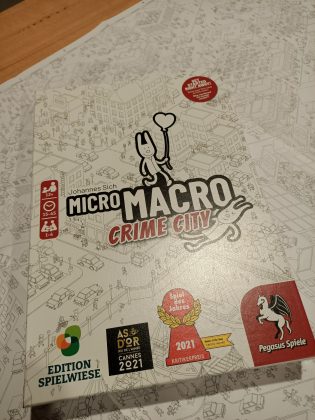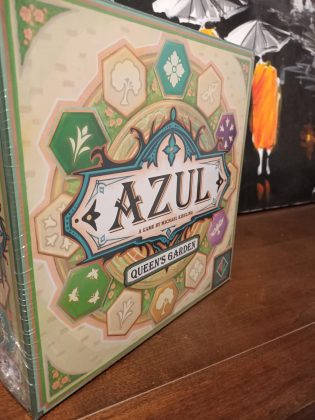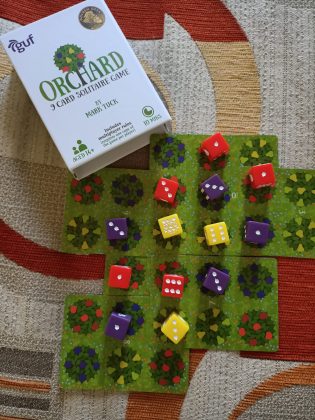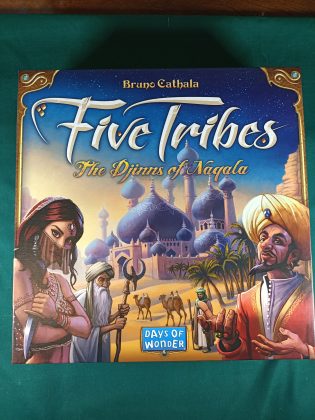
Context of the review: I have played 4 games of Bellum Sacrum at the 2 player count. A copy of Bellum Sacrum was provided to me by the designer.
Bellum Sacrum, translated to Sacred War, is a two player competitive card game releasing this week on Kickstarter. I was lucky enough to receive an advance copy from designer Anthony Gibbons for review and to give my opinion on the game.
As you have probably read on here a lot of the games that I play tend to be 2 player, work is busy so I don’t always get the time that I want to be attending a game group. So when the opportunity to play Bellum Sacrum came across my feed I was immediately interested.
Bellum Sacrum tells the story of the Roman Gods who, during their down time, fight amongst one another to pass the time. In this competitive card game you take the reins of a group of Gods and strategise to wipe out your opposition.
Game Play
At it’s core Bellum Sacrum is a simple card conflict game, but like many others such as Air, Land and Sea and Battle Line, you will find yourself constantly thinking up new ways of doing things and approaching problems that come your way. Like these games, you will be fighting to a majority amount of trophies, when the game is over.
Players each receive a deck of 42 cards – either Gods or Goddesses, who they must deploy in battle. Unlike Battle Line and other games of it’s ilk, Bellum Sacrum employs a vertical column of cards rather than an across the table horizontal approach. Through 4 moves per turn players can:
- Draw cards into their initial hand of 5 cards;
- Deploy Gods into a row in the column (max of 3 rows)
- Strengthen a God – by adding the same colour God to an existing row;
- Attack the front God in the opposition column;
- Use an Invocation – described further below.
A trophy is gained when a player destroys their opposition’s column in a single turn, play continues until the first player reaches 5 trophies.
Invocations, or special powers, is where a lot of the fun lies in this game. Each God has their own special power which you can choose to use during your turn. To do this you must discard any number of the God, however your opponent can block this action by discarding the same amount and type from their hand. This leads to fantastically frustrating interaction as you decide whether it is indeed worth your while to risk discarding cards for nothing, if the chances are that you will be blocked.
Attacks are also unique in that the front of the column must attack (and rest afterwards) however you can also enlist the assistance the help of the Gods in the column behind you. This is especially useful when you get a God of Love that is all defence and no attack at the front of the opposition column.
This game is not going to work, however, if you aren’t a ‘take that’ player, or if you don’t appreciate strategy. A lot of this game is in-your-face conflict and if this is not your style, then it’s probably best to give it a miss. Returning from a full column wipe can also be difficult (although you do have an extra move) and requires planning and precision, otherwise you will fall victim to another wipe potentially in the next turn. For me that is what built the tension in this game, that you can’t just laugh off a full wipe and start again, but you have to strongly strategise to make sure it doesn’t happen again. This ensures that you are always fully engaged in the game, but again, if this isn’t your style or you are a more fast and loose player, then this probably isn’t the game for you.
Overall
Like many good games, Bellum Sacrum runs the line between ease of play/setup and fun and hits this mark pretty well overall. If you are looking for a card game with high conflict and strategy this is a must have for you. With a few simpler variants – removal of invocation powers etc – this game also becomes a great game for the younger ones in your family as well.
Other Games
Like the theme but looking for something a bit easier or more abstract? Santorini is the game to seek out here – fantastic production, great theme and can be played both in the simple and advanced modes.
Don’t like the theme, but love what it does with cards? Reiner Knizia’s Battle Line




